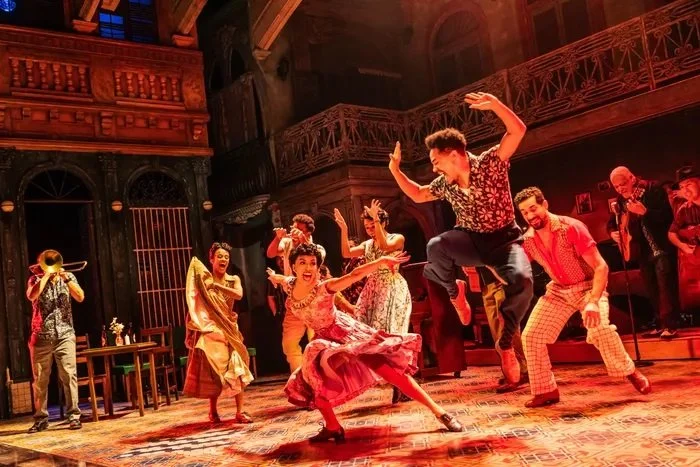When a Musical Legacy Becomes a Legal Battle: The 'Buena Vista' Name Dispute
Photo: Matthew Murphy
by Chris Peterson, OnStage Blog Founder
The rhythms of Cuban music have long pulsed with history — and few names carry that rhythm more famously than Buena Vista Social Club. But recently, what began as a celebration of culture has taken a litigious turn. The name at the center of a Grammy-winning album, a globe-trotting ensemble, and now a Broadway musical, is under legal fire — and the results could have major implications for the future of live performance, artistic ownership, and cultural storytelling.
Here’s the short version: the Broadway production Buena Vista Social Club, currently making waves with its nostalgic, music-infused narrative, is backed by BMG and World Circuit — the same folks who’ve held the trademark to the name since 1999. So when a touring group led by trombonist Jesús “Aguaje” Ramos — an original musician from the famed ensemble — started promoting concerts under the name Buena Vista Orchestra, alarms went off.
BMG sent a cease-and-desist, claiming potential brand confusion. The orchestra? They lawyered up.
Now, in a federal lawsuit filed in Los Angeles, the musicians are challenging the trademark's validity, calling out what they claim is a fraudulent renewal in 2023. Their point: BMG's trademark covers “live concert performances,” yet they’re currently using the name for a theatrical production — something quite different under trademark law. Their deeper argument, though, goes beyond legal technicalities. They say “Buena Vista” isn’t just a brand — it’s a place, a neighborhood, a heritage. And no one corporation should own that legacy outright.
Steven Machat, one of the producers representing the orchestra, says the musicians even tried to compromise by using alternate naming formats like The Original Musicians of the Buena Vista Social Club, but were still met with resistance.
And here’s the complicated twist: both groups — the Broadway show and the touring orchestra — are trying to honor the same story. The original Buena Vista Social Club album, released in 1997 and produced by Ry Cooder, was a love letter to the golden age of Cuban music, spotlighting seasoned artists who’d once played in Havana’s famed members-only venues. The magic of that album — and the Wim Wenders documentary that followed — sparked a global revival of interest in Cuban music and gave those musicians a platform decades after their prime.
So now, the question becomes: Who gets to carry the torch of that legacy?
Personally, it’s hard not to side — at least a little — with the musicians who are the story. Trademark law is important, yes, but so is honoring the very people whose lives inspired the name in the first place. It feels backwards when artists who gave Buena Vista its sound and soul are told they can’t use the name to keep that music alive.
What’s clear is this — at a time when we should be celebrating the enduring power of live performance, we’re watching two groups, both with claims to the same cultural history, being pitted against each other in court.
There’s something heartbreaking about that.
Because at the end of the day, Buena Vista isn’t just a title. It’s a sound. A feeling. A memory. And maybe, just maybe, we need a little more harmony offstage, too.
